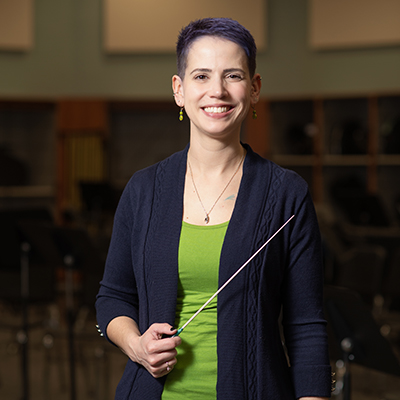Delta College Faculty Unionize
Academic autonomy and professional respect were driving factors in a recent vote to unionize by faculty at Delta College near Bay City, which had been the only remaining non-union community college in the state.
The win brings nearly 200 potential new members into the MEA family.
 After months of organizing work, 86 percent of participating faculty voted in favor of joining MEA—145 to 24—in a mail ballot election certified by the Michigan Employment Relations Commission on Jan. 4.
After months of organizing work, 86 percent of participating faculty voted in favor of joining MEA—145 to 24—in a mail ballot election certified by the Michigan Employment Relations Commission on Jan. 4.
The high turnout and overwhelming number of votes in favor provided a telling statement, said English Professor Karen Randolph.
“Faculty is reinvigorated because of this vote,” she said. “We are not a disgruntled few. We are a unified faculty with a new outlook on our future, and we look forward to working with administration to create the ‘Delta Difference’ with students and with our community.”
The unionization effort grew from faculty frustration over the past few years following administration moves that removed the certainty of work rules, Randolph said.
“We unionized because… we weren’t sure what was next on the chopping block, and we weren’t willing to wait and find out,” Randolph said.
Most recently the Board of Trustees and college administration eliminated department chairpersons in college division leadership and replaced them with management-led supervisors—disrespecting decades of shared governance.
“We were seeking to protect our voices in shared governance and seeking to codify our work rules in a contract,” Sociology Professor Donna Guiliani said. “We want to cultivate a successful working relationship, and ground rules are part of that.”
The faculty also sought representation to access legal advice from an organization interested in protecting their rights.
“We haven’t had the kind of legal representation that MEA brings with it,” Giuliani said.
The movement to unionize at Delta College took a grassroots approach. The 12-member organizing team was made up of respected faculty members from every division of the college, Giuliani said.
“What we were seeking was grounded in the health of the college, the faculty, and the student learning environment.”
At the first public meeting to discuss reasons for unionizing last summer, nearly 100 faculty members turned out. So many people showed up, “We had to go find more food,” Giuliani added.
MEA Organizer Jake Louks said that moment stood out in his three years as an organizer. “People were clapping and interrupting each other to cheer. That was the moment they won, even if they hadn’t yet secured representation, because it changed the culture forever.”
The next steps will be to develop the Constitution and Bylaws, elect officers, and begin negotiating a contract. “Faculty are very conscious of the fact that there is a lot of work ahead of us,” Guiliani said.
Looking forward, faculty members are renewed, in unison, and hopeful, Randolph said.
“Other colleges that have unionized recently have found that the marriage between shared governance and the union has not only made the decision-making stronger but has also made relationships more respectful and less unsure,” she said.
MEA now represents faculty on 30 college and university campuses across the state, and Delta College faculty brings to 21 the number of community college faculty groups with MEA representation.
In the last few years, MEA has organized faculty at four community colleges, including Delta, Northwestern Michigan College in Traverse City, North Central Michigan College in Petoskey, and Southwestern Michigan College in Dowagiac.


